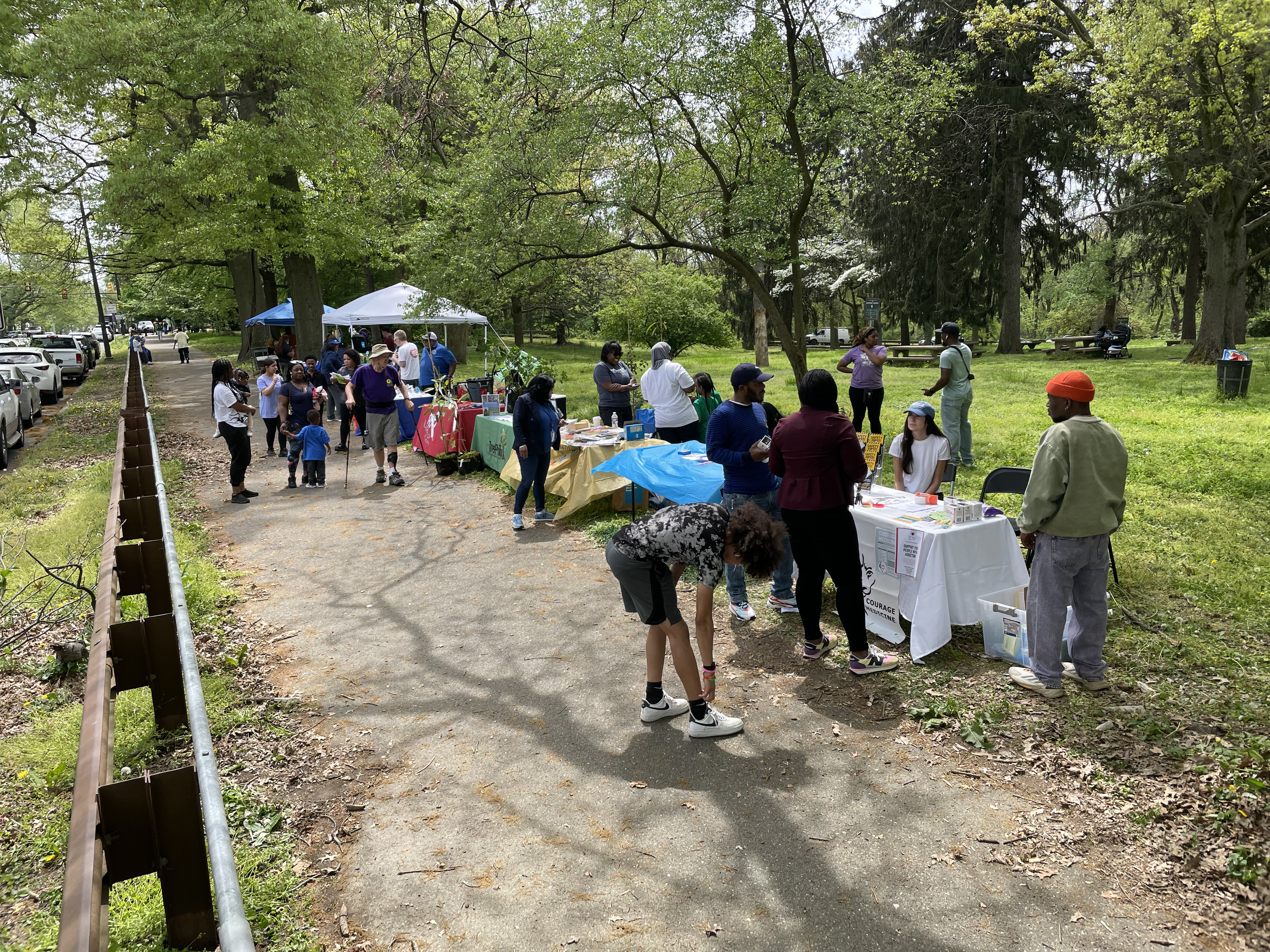As public interest lawyers, people often ask us: “What can I do to help be part of the change?” We are sometimes asked: “Is change really possible?” Our answer is YES, absolutely! If not, we would still be breathing toxic fumes from coal stoves. If our great grandmothers were lucky, they would get to listen to their husbands speak of who they were planning to vote for. Despite signs of progress, there are days when politicians seem to squander our better interests, judges push the legal pendulum back, and opposition stirs up anger and hostility. It can be hard to cope and maintain hope.
But any significant change begins small—much like anything else in nature. Sometimes, a simple conversation or a letter can open eyes and minds in surprising ways. For example, this past year, Clean Air Council and concerned residents opened a dialogue with Amtrak about its plans to convert the heating system in Philadelphia’s 30th Street Station from the Philadelphia steam loop to onsite methane gas-fired boilers. Gas is “greenwashed” by the oil and gas industry as “clean” energy.

However, natural gas produces harmful carbon emissions, and from a climate perspective, some studies found that it is worse than coal. Disconcertingly, Amtrak’s plans to install a new gas-fired system would have locked 30th Street Station into a dirty energy system for decades to come. The steam loop is a centralized energy system that can more easily be cleaned up in the coming years. A dedicated gas boiler system cannot be cleaned up, and would instead poison the air that local residents, travelers, and workers breathe and contribute to the climate crisis. It would also frustrate local and federal efforts to aggressively decrease carbon emissions. Hearing the concerns that the Council and others raised, Amtrak opted to stay with the steam loop until a truly clean heating option is developed. This action protects public health, and its many effects will resonate and accumulate into powerful change.
Paying attention to local politics, and taking action whenever possible, is another way to amplify actions—especially at the municipal level. Clean Air Council’s Transportation Team advocates for safer local transportation policy in partnership with the Better Mobility Coalition, as well as improved access to parks where kids can learn nature literacy.
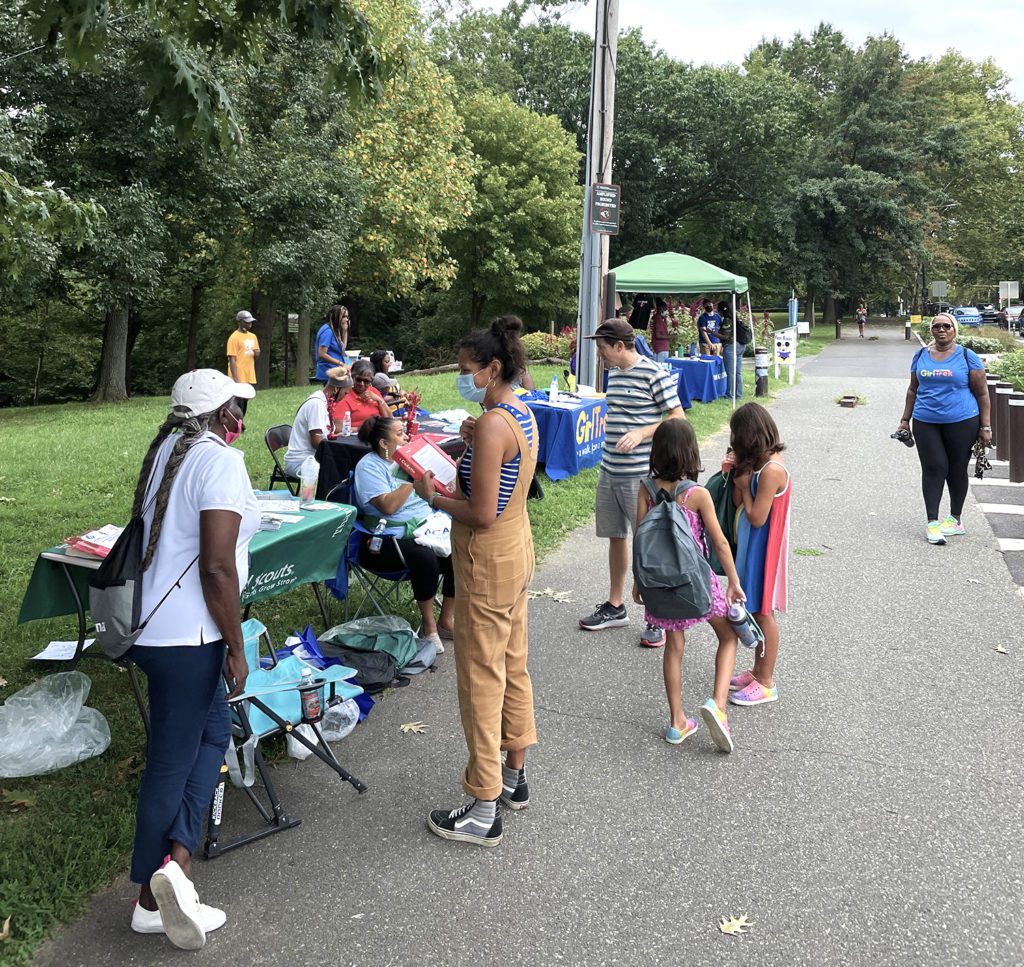
Also, this past spring, the Clean Air Council’s Legal and Advocacy Teams supported residents of Point Township, a rural area in North Central Pennsylvania, in their opposition to a building variance for the proposed $1.1 billion dollar facility, Encina Chemical “Recycling” Plant. The oil and gas industry uses the term “advanced recycling” to greenwash a process that neither recycles nor is advanced; it is essentially the burning of toxic plastics that releases toxins into local air and water like the Susquehanna River.
Since it flows all the way to the Chesapeake Bay, these toxins would likely impact the hundreds of millions of blue crabs that Maryland visitors eat each year. After Northumberland County residents objected, the local zoning board denied the extra 30-foot variance that Encina needed to construct a vital part of its facility. Encina then withdrew important water permits required to start construction. This gives hope that this hazardous plant may not come to fruition and that awareness is building about the toxic effects of reliance on plastics. None of this would have happened if the local residents of Point Township had not spoken up.
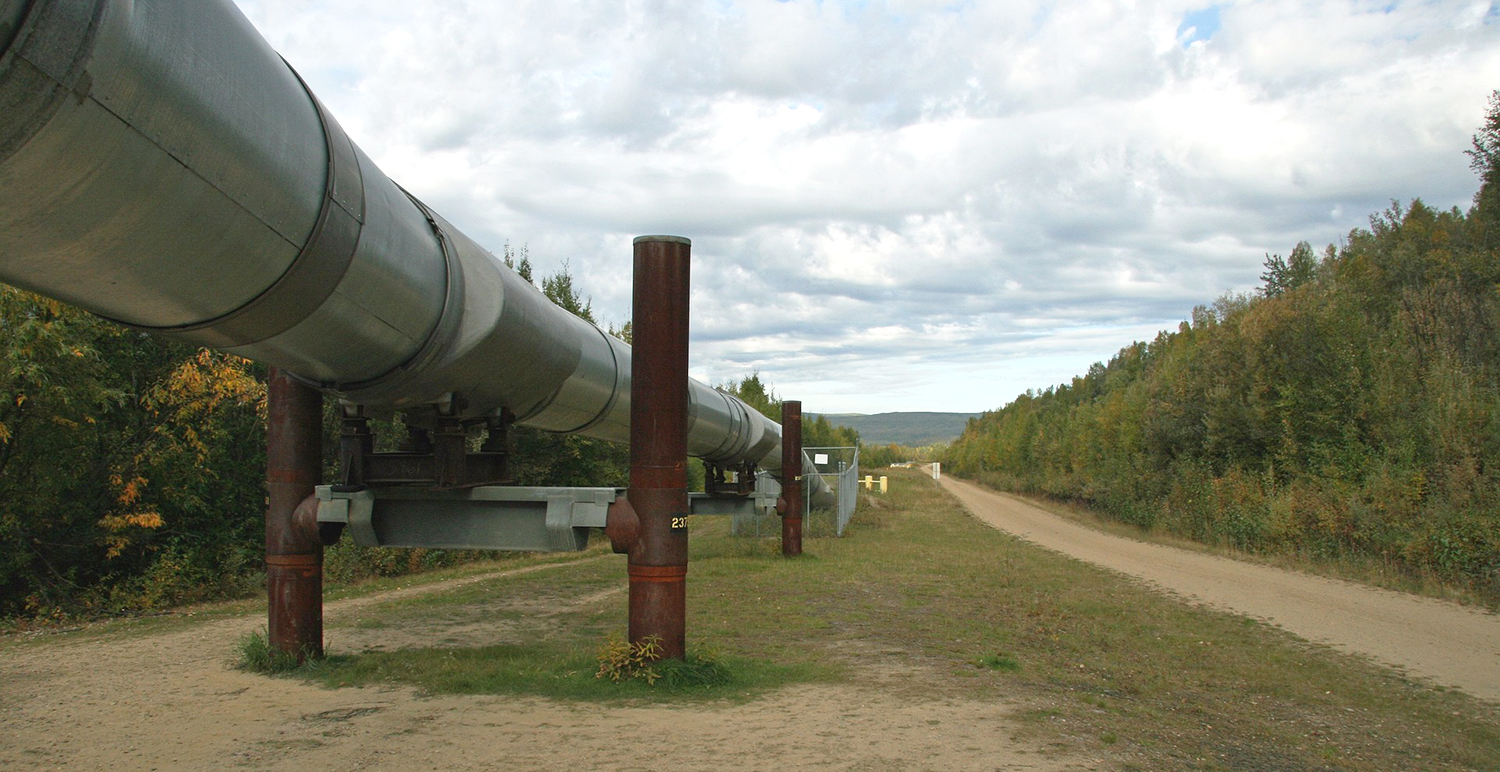
The fight to protect Pennsylvanians’ constitutional right to a safe and healthy environment is staggeringly hard. But everyday actions sometimes inspire great things. We are so inspired by people who start small then become community advocates. Representative Danielle Friel-Otten worked with the Clean Air Council to oppose the Mariner East 2 Pipeline, then decided to run for office, and won. Jess Conard, a mom and speech language pathologist turned fierce environmental advocate, joined the fight last year after a train passed through her backyard on fire then derailed in East Palestine, Ohio. Post-incident mismanagement turned what could have been a smaller spill into a disaster with effects as far away as New Hampshire. It continues to be a public health crisis in Jess’s community a year later.
So, what can you do to help be part of the change? Pick an issue that matters to you, and dig in. If it’s environmentalism, follow Clean Air Council on social media, become a member, and join our email list. Regardless of which issue matters to you:
- Follow your local elected officials so you can start to get a sense of what is happening locally.
- Never miss an election! Local elections are sometimes decided by less than a dozen votes.
- Attend and speak at your local municipal board meetings. Municipalities have enormous abilities to enforce pro-environment policies quickly, as opposed to state-level government. Municipalities can prohibit plastic bags and single-use utensils, permit solar or wind farms, and adjudge zoning and zoning variances to prevent polluting facilities from entering your township.
- Follow the organizations that strive to hold elected officials accountable, like Clean Air Action and Committee of 70.
- Join local civic groups. Find them via your local newspaper, library, or neighborhood social media pages.
- If you can’t find a group for the issue you want, start one. Once you have a few friends, a mission, and a plan, you might even be able to get funding from your local government or related nonprofits.
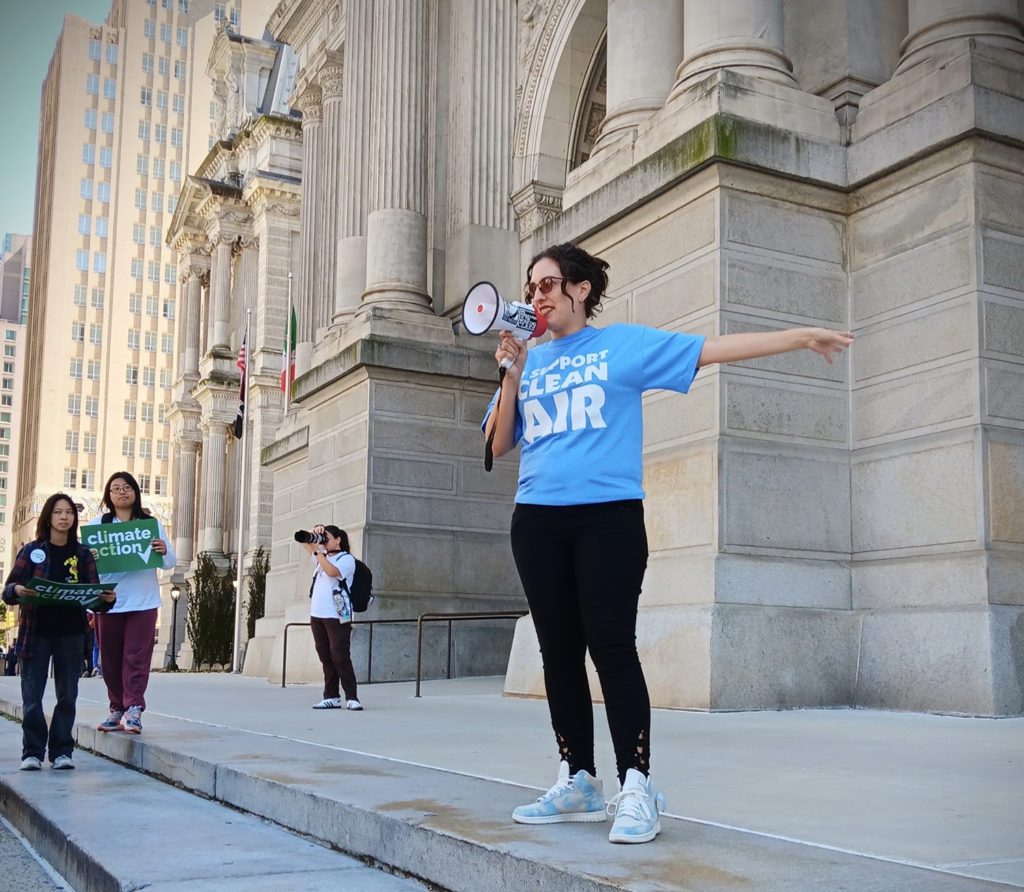
At Clean Air Council, we also keep hope alive by working on long-term, large-scale change while chipping away at smaller issues locally. That helps our neighbors and helps keep us going. When one of us is feeling low on faith, we reach out to colleagues or mentors, who not only remind us to take a break but also:
Change is possible. We can do hard things. But we can’t do them alone.
Lauren Otero, Staff Attorney, Clean Air Council
Liz Green Schultz, Political Director, Clean Air Action

WASHINGTON, DC (December 14, 2023) – Today, the United States Environmental Protection Agency (EPA) announced that vinyl chloride is a candidate for high-priority designation under the Toxic Substances Control Act (TSCA). The primary goal of TSCA is to regulate the introduction of new or existing chemicals into commerce to ensure that they do not pose an unreasonable risk to human health or the environment. If EPA finds vinyl chloride presents unreasonable risk, it must start a process of developing a risk management rule to eliminate all risks that it found to be unreasonable. Risk management may take many forms including, but not limited to, bans or partial bans, phase-outs, restrictions on manufacturing, processing, distributing, or disposing – including volume restrictions and prohibitions on release or discharge. The public will have the opportunity to comment on the proposed risk management rule.
Matt Walker, Clean Air Council Advocacy Director, issued the following statement:
“Clean Air Council is very pleased that EPA has selected vinyl chloride as a candidate for high-priority designation under TSCA. Vinyl chloride is a known human carcinogen and can cause other serious health harms. In communities that live in the shadow of petrochemical facilities, the harms from vinyl chloride exposure are compounded by exposures to other other toxic chemicals and stressors. EPA must consider these cumulative risks in its analysis. As the disaster in East Palestine, Ohio demonstrated, people living along rail lines used to transport vinyl chloride are in danger of significant exposures to this toxic chemical. It will be critical for EPA to evaluate these risks.”
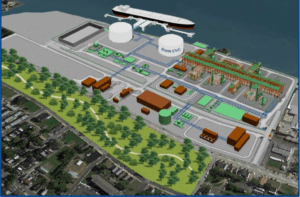
PHILADELPHIA, PA (November 3, 2023) – The Philadelphia LNG Export Task Force approved a report on Wednesday that did not address concerns raised by potentially affected residents, stressed economic benefits of building an LNG (liquefied natural gas) export terminal that are not aligned with LNG market predictions, and called for changes in state and federal law to support the LNG industry. The report also failed to address multiple obstacles discussed by Representative Joseph C. Hohenstein, which could render any LNG export terminal in Southeast Pennsylvania legally, technically, and economically infeasible, including the surge in the supply of LNG for export and the anticipated decline in European demand.
In Fall 2022, the Pennsylvania General Assembly voted to form the Philadelphia LNG Export Task Force to address the “existing obstacles, economic feasibility, economic impact and the security necessities” associated with turning the Port of Philadelphia into an LNG export terminal. At the time, the Council, joined by several community and environmental groups, asked that the Task Force include local community members instead of only governmental and industry representatives. The Task Force did not listen to this request. Although a 2016 Penn America report analyzed building an LNG project on the Chester waterfront and the company had engaged in related clandestine discussions with elected officials in Chester and Harrisburg, even some Task Force members were at first unaware they would be primarily evaluating the Chester location rather than focusing solely on Philadelphia.
Chester residents, who have long fought for environmental justice, as their families are sickened by a concentration of polluting industries, have opposed any potential new industrial facility and the overall lack of transparency. Several community leaders were denied the opportunity to speak at the Task Force’s April meeting focused on security concerns. In August, residents showed up in force to a public hearing in Chester to unequivocally state that LNG and other harmful industries were not welcome. They stated that they are unwilling to pay the health cost from increased pollution, endure the risk of catastrophic explosions seen at other facilities, or accept the destruction of over 800 homes and community institutions to build a buffer around the site.
Joseph Otis Minott, Esq., Clean Air Council Executive Director and Chief Counsel, released the following statement:
“Cramming a dangerous LNG export terminal into our Southeastern Pennsylvania riverfront risks the health and safety of many surrounding neighborhoods, and the financial stability of our region.The terminal would lock the region into dirty and outdated fossil fuels for decades, further fueling the climate crisis when we know we need to be cutting climate pollution as much as possible. Simply put, the LNG Task Force Report is gas industry marketing propaganda that is out of touch with the community’s priorities and economic realities. The Council lauds Representative Hohenstein for consistently seeking transparency from the Task Force and championing public input in the conversation.”

HARRISBURG, PA (November 2, 2023) – In 2020, the recommendations of Pennsylvania’s 43rd Statewide Investigating Grand Jury released a report on the systemic problems of the unconventional oil and gas industry. The Grand Jury made a series of reasonable and easy-to-implement recommendations that would better protect the health, welfare and quality of life of Pennsylvanian residents. Despite the recommendations of the Grand Jury, the Pennsylvania Legislature has done little to implement the Grand Jury recommendations.
Today, Governor Shapiro is moving forward in implementing the Grand Jury Recommendations by instructing Pennsylvania’s Department of Environmental Protection (DEP) to draft regulations to protect Pennsylvania residents and the environment from the chronic pollution emitted by the gas industry.. In today’s press event with CNX Resources, the Governor will highlight new public health and environmental protections from the gas industry. Residents throughout Pennsylvania have been demanding protections from gas infrastructure for years while the gas industry has opposed them.
The Governor has instructed the DEP to adopt regulations that will require the gas industry to disclose all the chemicals used in drilling, set stronger standards for dealing with drilling waste and assure the safety of gathering pipelines. Governor Shapiro also committed to improved standards to reduce climate-changing methane emissions from the gas industry which is a major contributor to climate change.
In Response, Joseph Otis Minott, Esq., Clean Air Council Executive Director and Chief Counsel, released the following statement:
“Clean Air Council strongly supports Governor Shapiro’s decision to move forward in implementing the commonsense public health and environmental standards recommended by the 2020 Grand Jury to better protect Pennsylvania residents from oil and gas operations. For far too long, the gas industry and too many elected leaders have shown a disregard for the harm the industry is causing to residents’ health and the environment. It is past time that our leaders adopt protections from this industry.”
“We applaud Governor Shapiro’s leadership in recognizing the need to further reduce methane pollution from the gas industry, and look forward to supporting him and the DEP in tailoring the forthcoming federal rules to ensure they address the concerns of Pennsylvania residents affected by the gas industry.”
The Council encourages the Governor to additionally propose regulations to require setbacks that better protect residents and our natural resources from harmful gas infrastructure. DEP has the legal authority, scientific evidence, and public support needed right now to adopt setback distances that prevent this infrastructure from being built too close to our homes, schools, hospitals, streams, and wetlands.
To demonstrate how the industry needs to do more, the Governor announced a partnership with the gas company CNX Resources, which agreed to disclose its chemical use and better monitor its emissions, something that residents in areas affected by fracking have been demanding for years.
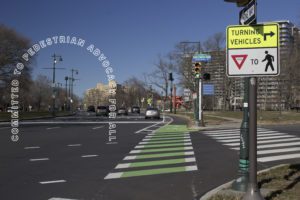
PHILADELPHIA, PA (August 1, 2023) Feet First Philly (FFP), a volunteer led pedestrian advocacy organization and a project of the Clean Air Council, launched the fourth round of their Public Space Enhancement Mini-grant program that funds projects aimed at improving Philadelphia’s pedestrian environment. The mini-grant winners receive funding ranging from $500 to $2000 to create public space enhancements and safety improvements. FFP is hosting an informational webinar on August 24th for anyone who is interested in learning more about the mini-grants.
FFP is Philly’s only volunteer advocacy group dedicated to pedestrians and sponsored by the Clean Air Council. In 2020, FFP launched its first pedestrian enhancement mini-grant program with seven projects that were led by and benefited local communities. Since then, the program has awarded 34 mini-grants to local organizations all over Philadelphia. These projects provided funding for extended efforts to clean up the Cobbs Creek Trail, create a pocket park for community members to access and engage with, hire a contractor to do reconstruction of a severely damaged sidewalk in Kensington, paint a mural on a newsstand, add amenities to a local meadow to make it a walking destination, install bike racks to prevent illegal parking and so much more. With the mini-grant funding, FFP and its partner organizations have been able to enhance public spaces in Philadelphia in unique ways.
“The mini-grant program has successfully funded 32 projects that include Kensington Neighborhood Association, Village of Arts and Humanities, Hunting Park Community Garden, Cobbs Creek Ambassadors, ACHEIVEability and so many more,” said Nick Zuwiala-Rogers, Clean Air Council Transportation Program Director. “We’ve had a lot of new grant proposals come in to expand the program. We’re so excited that we can continue to fund community and pedestrian improvements.”
“Pedestrian advocacy projects bring communities around Philadelphia together to create safer and healthier spaces,” said Titania Markland, Clean Air Council Transportation Outreach Coordinator. “They allow for people from all walks of life to come together and make this city a safer and healthier place. Through the mini-grant, we can give Philadelphians the ability to build their communities in ways that benefit their neighbors.” Safety is a top priority for this program and applicants are encouraged to identify ways their project can improve safety in their communities.
FFP received funding from the Department of Public Health for the mini-grants. If you are interested in applying or want more information, attend the webinar on August 24th at 6pm EST. Applicants can email tmarkland@cleanair.org to set up a one on one meeting with Clean Air Council staff to discuss their project ideas. Applications for the mini-grant are open until Monday, October 9th at 11:59 PM EST.
Funding limits the amount of amazing projects the program can support, but supporters can help. Every $2000 raised means one more project gets funding, and a community in Philadelphia can improve a public space in a way that reflects their vision for more walkable, safe, and accessible neighborhoods. Feet First Philly has set up a donation page with funds raised going directly to supporting more mini-grants. Make an impact with a gift today, and help fund more public space enhancement projects in Philadelphia. Support this program here.
###
Feet First Philly is Philadelphia’s only advocacy group dedicated to pedestrian rights sponsored by the Clean Air Council. Feet First Philly volunteers meet regularly to plan advocacy campaigns, public walks with a theme, and to discuss policy issues that affect pedestrians.
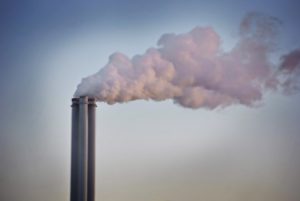
FOR IMMEDIATE RELEASE
Contact: Alex Bomstein, Legal Director, Clean Air Council, abomstein@cleanair.org
Jessica O’Neill, Senior Attorney, Citizens for Pennsylvania’s Future, oneill@pennfuture.org; Leigh Martinez, Director of Communications, Citizens for Pennsylvania’s Future, martinez@pennfuture.org,
Robert Ukeiley, Senior Attorney, Center for Biological Diversity, 720-496-8568, rukeiley@biologicaldiversity.org
Renovo Energy Center Will Not Be Built
After many years of community opposition and nearly two years of litigation, the residents of Renovo can breathe easier.
Today, the Bechtel Corporation announced that it is withdrawing its plan to develop a fracked gas-fired power plant at the former rail yard in Renovo Borough, Clinton County.
In 2021, Clean Air Council, Citizens for Pennsylvania’s Future (PennFuture), and the Center for Biological Diversity lodged their appeal of the DEP air quality permit for the Renovo Energy Center, which would have been built just feet away from the homes and businesses of the environmental justice community of Renovo, in North Central Pennsylvania. The groups objected to the permit because it allows illegal levels of air pollution, ignored environmental justice concerns and the health costs to society in issuing the permit, and for several other deficiencies spelled out in the Notice of Appeal.
In August 2022, the environmental groups won some of their challenges to the permit before the Pennsylvania Environmental Hearing Board. The Board granted partial summary judgment on the issues of the illegal sulfur dioxide and volatile organic compounds limits in the permits. That means that the environmental groups proved, without needing a trial, that DEP broke the law when it allowed the power plant to emit such high pollution levels. High levels of sulfur dioxide can cause health problems, including hurting lung function, causing wheezing and shortness of breath. Volatile organic compound pollution may irritate people’s eyes, nose, and throat, increase cancer risk, and damage the central nervous system. The Board’s opinion is here.
Now, the developers behind the facility have announced that they have chosen to end their attempts to build this fracked gas plant.
“Bechtel’s decision to cancel this dangerous plant is a crucial win for the health, welfare and safety of the residents of Renovo, who have been peddled lies about this project’s purported benefits and illegally cut out of the permitting process,” said Joseph Otis Minott, Executive Director and Chief Counsel of Clean Air Council. “Pennsylvania’s economic growth depends on a clean energy future and will not be achieved by pumping millions of tons of air pollution every year right into the heart of communities like Renovo.”
“Our lawsuit was about protecting Pennsylvania and this environmental justice community from the additional pollution burdens that this plant would have imposed,” said Jessica O’Neill, Senior Attorney at PennFuture. “It is a win for Renovo and for all Pennsylvanians when we realize that the fracked gas industry doesn’t make sense – from an economic, energy, or environmental health perspective. We will continue to push back against facilities and industries that threaten the health of our communities, our workers, and the sustainable energy future that Pennsylvanians want and that our children deserve.”
“The cancellation of this proposed fracked gas burning power plant helps move us forward to a future powered by wind and solar power,” said Robert Ukeiley, an environmental health lawyer at the Center for Biological Diversity. “Every step away from fossil fuels is a step toward averting both climate disaster and the biodiversity crisis.”
“As a great-grandparent, I’m grateful that this power plant didn’t come to fruition because we are now able to protect what is most important – the health of our children,” said Sue Cannon, co-founder of Renovo Residents for a Healthy Environment. “I opposed the power plant because I was thinking about the children in this community, especially my great-grandchild, and what the pollution would do to their health. After all, children are our most precious assets.”
“This decision gives us great hope for the future of Renovo’s health, quality of life, and future prosperity,” said Maureen Ruhl, co-founder of Renovo Residents for a Healthy Environment. “We look forward to building Renovo’s future with a vision based on tourism, our natural resources, recreation, and our railroad history – all of which we hold dear.”
###
Clean Air Council is a member-supported, non-profit environmental organization dedicated to protecting everyone’s right to a healthy environment. The Council has offices in Philadelphia, Pittsburgh, and Wilmington, and works through public education, community advocacy, and government oversight to ensure enforcement of environmental laws. For more information, please visit www.cleanair.org.
PennFuture is leading the transition to a clean energy economy in Pennsylvania and beyond. We are protecting our air, water and land, and empowering citizens to build sustainable communities for future generations. Visit www.pennfuture.org.
The Center for Biological Diversity is a national, nonprofit conservation organization with more than 1.7 million members and online activists dedicated to the protection of endangered species and wild places.
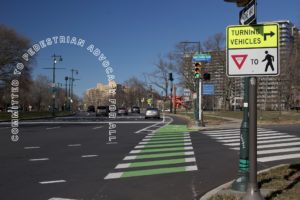
PHILADELPHIA, PA (September 1, 2022) Feet First Philly (FFP) launched the third season of their public space enhancement mini-grant program that funds projects aimed at improving Philadelphia’s pedestrian environment. The mini-grant winners receive funding from $500 to $2000 to create public space enhancements and safety improvements. FFP is hosting an informational webinar on September 7th for anyone who is interested in learning more about the mini-grants.
FFP is Philly’s only volunteer advocacy group dedicated to pedestrians and sponsored by the Clean Air Council. In 2020, FFP launched its first pedestrian enhancement mini-grant program with seven projects that benefited local communities. The second year of the mini-grant funded nine projects. These projects provided funding for extended efforts to clean up the Cobbs Creek Trail, create a pocket park for community members to access and engage with, hire a contractor to do reconstruction of a severely damaged sidewalk in Kensington, paint a mural on a newsstand, add amenities to a local meadow to make it a walking destination, and so much more. With the mini-grant funding, FFP has been able to enhance public spaces in Philadelphia in unique ways.
“The mini grant program has successfully funded 16 projects that include Kensington include Kensington Neighborhood Association, Village Arts and Humanities, and so many more,” said Nick Zuwiala-Rogers, Clean Air Council Transportation Program Director. “We’ve had a lot of new grant proposals come in to expand the program. We’re so excited that we can continue to fund community and pedestrian improvements.”
“Pedestrian advocacy projects bring communities around Philadelphia together to create safer and healthier spaces,” said Titania Markland, Clean Air Council Transportation Outreach Coordinator. “They allow for people from all walks of life to come together and make this city a safer and healthier space. Through the mini-grant, we can give Philadelphians the ability to build the city how they see it and how they want it to be.”
FFP received funding from the Department of Public Health for the mini-grants. This year, FFP was awarded $9000 towards funding more mini-grants and received $1000 from University of Pennsylvania students that will be used as a stipend for one or two community members to be a part of the selection committee. The funding is split into $500 to $2000 mini-grants for the projects. If you are interested in applying or want more information, attend a webinar on September 7th at noon EST. Applications for the mini-grant are open until Tuesday, October 11th at 11:59 p.m EST.
###

Do you feel like politics has gotten more contentious over time? Do you feel like your interests are not represented in government? You’re not alone, and you’re not imagining it. Corporations wield their political power at the expense of regular people, and politicians rarely listen to their constituents, let alone each other.
Harrisburg is no better than Washington. Pennsylvanians want to protect our environment by wide margins. Polls show that most Pennsylvanians oppose fracking. Most Pennsylvanians want the state to do more to combat climate change. Almost nine out of ten Pennsylvania voters say that open space is important to them. Yet the Pennsylvania General Assembly has not passed any major pro-environment legislation in many years. That’s because our politicians by and large don’t represent the interests of the people.
One big reason that our system is so undemocratic is that our elections are designed to disempower the public. And it’s the public that protects our air, our land, and our water—corporate interests won’t do it for us.
Gerrymandering refers to the practice of drawing the lines of voting districts to benefit some interests at the expense of others. Because the State House and State Senate district lines in Pennsylvania are gerrymandered, competitive races among politicians with different values are rare, so voters often sit them out. And because the districts often stretch out over long, twisting expanses of geography, it can be hard for voters within a district to band together to protect their interests.
In 2018, the Pennsylvania Supreme Court undid the gerrymandered Pennsylvania Congressional district lines, declaring, “[a]n election corrupted by extensive, sophisticated gerrymandering and partisan dilution of votes is not ‘free and equal.’” Unfortunately, the gerrymandered House and Senate district lines remain, and partisan interests will again seek to redraw the Congressional district lines.
We don’t have to stand for unfair districts in Pennsylvania. Every decade, the U.S. Census compiles new demographic data that the states use to draw new voting districts. Right now, Pennsylvania is working on gathering information to draw those districts, and it’s asking for the public to weigh in on the process. There are hearings going on now at which you can testify about your desire for fair and impartial districts. You can find out more about how to do that here: https://www.fairdistrictspa.com/updates/happening-now-testimony-opportunities-for-fair-maps. You can also call or write to your State Representative and State Senator. If you’re not sure who they are or how to reach them, you can find out here: https://www.legis.state.pa.us/cfdocs/legis/home/findyourlegislator/. Don’t wait—get involved now!
It may seem counterintuitive to lament that politicians don’t listen to us and then suggest that you talk to your politicians. But while our voices should have more power, that doesn’t mean that they have none now. Clean Air Council members time and again win hard-earned victories against corporate interests by organizing, speaking up, and fighting hard. Our model is built on the power of the people. We can win fair districts in Pennsylvania. When we do, our voices demanding clean air, pure water, and a healthy environment will have to be heard.
By Alex Bomstein, Senior Litigation Attorney, abomstein@cleanair.org
Hear how Southwest PA Neighbors for Clean Air group leader Julie DiCenzo became involved in environmental advocacy and how the Neighbors campaign has benefitted her and her community:
Julie: I graduated from The Ohio State University, School of Allied Medical Professions, with a B.S. degree in medical communications, and moved to the Washington D.C. area where I worked as a medical writer and editor with International Medical News Group (Rockville, MD) for many years. I was the Cleveland Bureau Chief for 3 years and then the Pittsburgh Bureau Chief, and I traveled all over the United States covering medical conferences. I then went on to freelance and have continued writing and editing manuscripts, pamphlets, and websites.
My husband is a “yinzer” and we moved to Leet Township, PA in 1989 from Ohio. My family then moved to Bell Acres in 2007 and we have several acres of land. So I have lived in the Sewickley Valley area for 30 years.
The happy “bubble” I was living in burst several years ago when a shale gas company landman was making the rounds trying to get folks in Bell Acres to lease their land for fracking. The president of our newly-formed homeowners association was pushing our small neighborhood to lease all our land, including the 30 acres of wooded community property behind our homes. I had to quickly educate myself about fracking to counter the arguments being thrown our way. Here’s what I was regularly told: “Fracking is all a mile or so underground so you won’t notice a thing; everyone else is leasing so your gas is going to get sucked out anyway and you might as well get paid for it; just think of all the money you can make;” and on and on. After several somewhat contentious neighborhood meetings, my husband and I and a few other neighbors were able to convince the rest of the community that leasing would be a bad decision.
In the meantime, our local newspaper ran an article about the Shell ethane “cracker” plant under construction in Beaver County—only about a dozen miles away from the heart of Sewickley—and it mentioned a local group called Communities First-Sewickley Valley. I followed up and ended up joining that group, whose mission statement is to protect health, safety, and the environment in the Sewickley Valley area, and raise awareness about the Shell petrochemical plant and the effects of fracking on air and water quality and public health.
Communities First-Sewickley Valley has been partnering with the Breathe Project and its community collaborators. Since I’ve been a part of Communities First, we’ve had many educational meetings on a variety of topics such as “What to Do When the Landman Comes Calling,” “The Shale Gas Industry and Our Health,” and “The Plastic Apocalypse.” We’ve also been working with Food and Water Watch on a municipal ordinance project throughout the Sewickley Valley and beyond to strengthen local oil and gas ordinances and make them more protective.
Communities First has two types of air monitors set up in the heart of Sewickley and we’ve been working with Carnegie Mellon University and Allegheny County Clean Air Now (ACCAN) to collect baseline air quality measurements. Once the Shell petrochemical plant starts up, we will continue to monitor any changes in air quality in Sewickley and compare these with the ongoing measurements in the rest of the network set up in the Ohio River Valley, the Pittsburgh area, and beyond.
Through educational meetings and community projects, I’ve had the privilege of working closely with the folks in the Beaver County Marcellus Awareness Community (BCMAC), Citizens to Protect the Ambridge Reservoir (CPAR), and Food and Water Watch. What starts out as casually seeing and meeting people at meetings develops into stronger bonds of purpose– we are all allied together working toward the same goals of clean air and water and preserving the characteristics of our communities that make them unique and special to us.
Somewhere along the way I heard about the Clean Air Council Southwest PA Neighbors for Clean Air and was interested in what they do. So I met up with Dave Smith at the local bagel shop and he was kind enough to “train” me and provide me with all the materials and support I needed to start a study group.
What I’ve enjoyed most about the Southwest PA Neighbors for Clean Air is the feeling of empowerment—how small community groups can work at the grassroots level to help get residents involved, even if it’s just encouraging them to start going to their borough or township meetings. I’ve come to learn that municipal ordinances are really where it all starts—even though it’s not a glamorous topic, local municipal oil and gas ordinances set the stage for what happens with fracking and the petrochemical buildout threatening our communities. It’s been a great feeling going to municipal meetings where residents have stepped up and made their voices heard—it’s really seeing democracy in action.
For example, I started attending Franklin Park Council meetings when word got out that their council was considering signing a shale gas lease for Linbrook Park. Some of the residents had been faithfully attending their municipal meetings for months and even years, and they were quietly working behind the scenes. They organized a larger group, held community meetings with impressive turnout, and ultimately they were able to stop their council from leasing those 80 acres of public park land for fracking. Now they are working to further protect residents by amending an oil and gas ordinance that was put into play just last December.
Economy Borough is across the county line near my home in Bell Acres, I’ve also been attending their meetings and working with Economy residents who are trying to stop a local shale gas drilling company (PennEnergy Resources) from using their residential road as the access road to a drilling well pad. Residents are also trying to persuade Economy Council that they need to amend their very permissive oil and gas ordinance, which allows surface shale gas drilling in areas zoned residential-agricultural–encompassing much of the land in Economy. The PennEnergy well pad already has its DEP permits and will be located less than 700 feet away from homes in the neighborhood of Orchard Estates. Some residents and I canvassed there and in other nearby neighborhoods where nothing at all was known about the planned well pad. We distributed flyers and signs (thanks to Clean Air Council for the signs) and got folks to sign a petition.
With the guidance of Lisa Graves-Marcucci of the Environmental Integrity Project, a large group of residents was alerted and mobilized and they descended upon the next council meeting, making a big impact. The crowd filled the room to capacity and overflowed out into the hallway—it was the largest crowd the council ever had at one of their meetings and I think it woke them up to take their residents’ concerns seriously.
When we discuss the unit each month at my Southwest PA Neighbors for Clean Air meeting, I am able to pass on to the group that these local actions can actually affect the big picture, which is often cast as a “David versus Goliath” situation. There are so many groups and so many ways to become involved—you could find a meeting to attend somewhere every day if you wanted to, and your level of participation is up to you. My Sewickley group is small with typically only three or four of us, but my group members say they are now having conversations about fracking and the petrochemical buildout with their friends and neighbors—something that was never really talked about here before. We all had been living in our bubble, mistakenly thinking that what was going on in Beaver County was “far away” and not really affecting us. In fact we are all breathing the same bad air, and in the case of the Ambridge Reservoir, many of us are also drinking water from the same source, a source now under threat from the Shell Falcon pipeline.
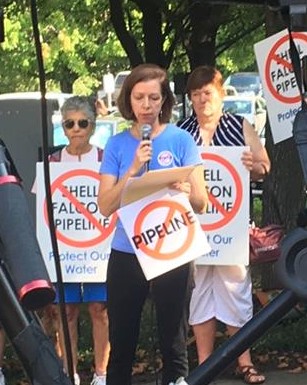
If you, like Julie, are interested in empowering your community by learning about and taking action on issues that threaten your health and the quality of life in your community, considering joining the Southwest PA Neighbors for Clean Air. Contact Dave Smith (dsmith@cleanair.org or 412-954-8494), Kelly Yagatich (kyagatich@cleanair.org or 412-723-7055), or Jay Walker (jwalker@cleanair.org or 412-532-9194) to learn more about how you can start or join a group in your neighborhood.
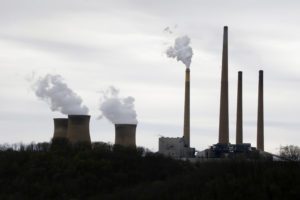
PHILADELPHIA, PA (April 24, 2019) Today, the American Lung Association released its 2019 State of the Air Report, evaluating metropolitan areas and counties throughout the nation with respect to air quality. Covering the years 2015-2017, the data demonstrate that air quality has been worsening in major urban areas in Pennsylvania. It reveals worsening fine particulate and ozone problems in Allegheny County and a worsening ozone problem in the Philadelphia metropolitan area.
Clean Air Council’s Joseph Otis Minott, Executive Director and Chief Counsel, issued the following statements:
“The data in today’s report reflect not only poor air quality, but worsening air quality. Particularly alarming is the problem of fine particulates in Allegheny County. It is unacceptable that the Allegheny County Health Department has failed to propose an attainment demonstration that was due several years ago, which would contain a control strategy to address this problem. When the health department makes its proposal within the next few months, this will be an opportunity for residents to be heard.”
“In addition, the Philadelphia area received failing grades for ozone. Asthma rates in Philadelphia are growing as a result of this harmful pollutant. Governor Tom Wolf is in a position to decrease ozone by directly regulating climate-warming methane from the tens of thousands of existing natural gas facilities across Pennsylvania. Curbing methane will not only improve health, it is critical to the climate goals that the governor set earlier this year.”
In the rankings for the annual standard for fine particulates, the Pittsburgh metropolitan area rose from 8th worst to 7th worst in the nation. For the daily standard, it maintained its rank as the 10th worst metropolitan area in the nation. In the ranking of counties for the annual standard, Allegheny County rose for the second year in a row, from 12th worst to 10th worst in the nation. For the daily standard, it fell from 20th worst to 24th worst in the nation. The number of high particle pollution days in Allegheny County increased for the second year in a row. Allegheny County received an F grade for fine particulates.
In the rankings for ozone, the Philadelphia metropolitan area rose from 24th worst to 21st worst in the nation. All counties in the 5-county Philadelphia area continue to receive an F grade for ozone, with all but Delaware County experiencing an increase in high ozone days. Allegheny County also continues to receive an F grade for ozone, with an increasing number of high ozone days.
The American Lung Association’s full State of the Air Report can be found here: https://www.lung.org/our-initiatives/healthy-air/sota/
